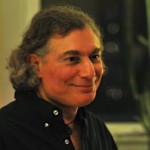

The Lifelong STEM Learning Campus-wide Seminar Series and Discussion Forum 2012-2013 continues on Tuesday, June 11th with a seminar led by Dr. John H. Falk entitled “Investigating Lifelong Science Learning.”
The seminar takes place from 4:00 – 5:00 p.m. and can viewed in Kidder 202, via Polycom to Cascades Campus Cascade Hall 112, and streaming online at live.oregonstate.edu.
Seminar Synopsis:
When do people learn science? Why do people learn science? Where do people learn science? In this talk derived from an NSF Distinguished Lecture, Dr. John H. Falk will present a brief overview of the growing understanding of how the public learns science across their lifetime. Dr. Falk will summarize two recent large-scale research studies. The first study sought to determine the relative contributions to public science understanding made by key sources of science education – schooling, free-choice learning and the workplace. The second study attempted to better understand the functioning of the infrastructure that supports public science education in the United Kingdom by using community ecology frameworks. The seminar will conclude with some thoughts and discussion about the implications of these findings for conducting science education research in the future.



